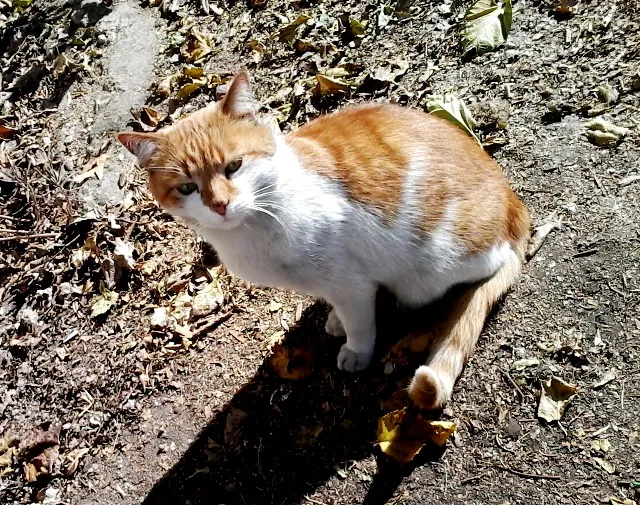The word herpes usually makes us think of cold sores or chicken pox and shingles but the family of herpes viruses is large and the strain of herpes virus that cats get is commonly called snuffles and causes flu-symptoms in cats. It often attacks the eyes as well, causing ulceration and blindness if not treated.
The worst part about herpes viruses is that they remain dormant in the body and reactivate during times of stress. Just as people who have flu can have an outbreak of cold sores at the same time, cats can have a herpes outbreak if they are rehomed or otherwise under stress. Cats are usually vaccinated against herpes as kittens and most cats have been exposed to the virus but an unfortunate few can suffer from regular outbreaks. The other problem with herpes is that it causes scarring of the nasal passages and tear ducts, leaving a cat with permanently runny eyes and chronic sinus infections.
In the past cats were mostly treated with lysine to help them keep the virus at low levels but this has been largely discredited as a treatment and more recently, a human antiviral that treats human herpes viruses is being used to help a cat fight off the virus more easily. Cats also tend to need antibiotics to fight off secondary bacterial infections that attack the airways and sinuses.
When my mother's cat Tom was rehomed to me, he got a fever and refused to eat a few days after he arrived. Initially, my vet gave him a cortisone shot to reduce swelling but cortisone makes herpes outbreaks worse because it suppresses the immune system. Tom proceeded to get so sick, I thought he would die. He had a runny nose and eyes and because he couldn't smell anything, he refused all food and had to be syringe fed. He also got mouth ulcers, a less common symptom, so he was really in pain. He had to have two courses of antibiotics and finally, after about two weeks, the worst was over and he started eating on his own again.

His blocked nose persisted for months afterwards and I had to run a humidifier at night to help him to breathe. Eventually, he was breathing better but his sinus infections persisted and he only improved after I had most of his teeth removed because he also had gingivitis and his infected teeth and gums were reinfecting his sinuses. Every time I put him on a course of antibiotics, he would clear up, but then the snot would reappear within a few weeks. After teeth extraction, he was a different cat and his nose cleared up completely.
When I bought my house and moved again, I was really worried that he would have another outbreak of the herpes virus but mercifully, he hasn't.
Cats that have chronic herpes can be kept with cats that don't show symptoms, it is only an unfortunate few that are susceptible to chronic bouts of illness but this is a severe virus in kittens, it is important that kittens are kept away from sick cats until they have been vaccinated. This virus is not capable of infecting humans